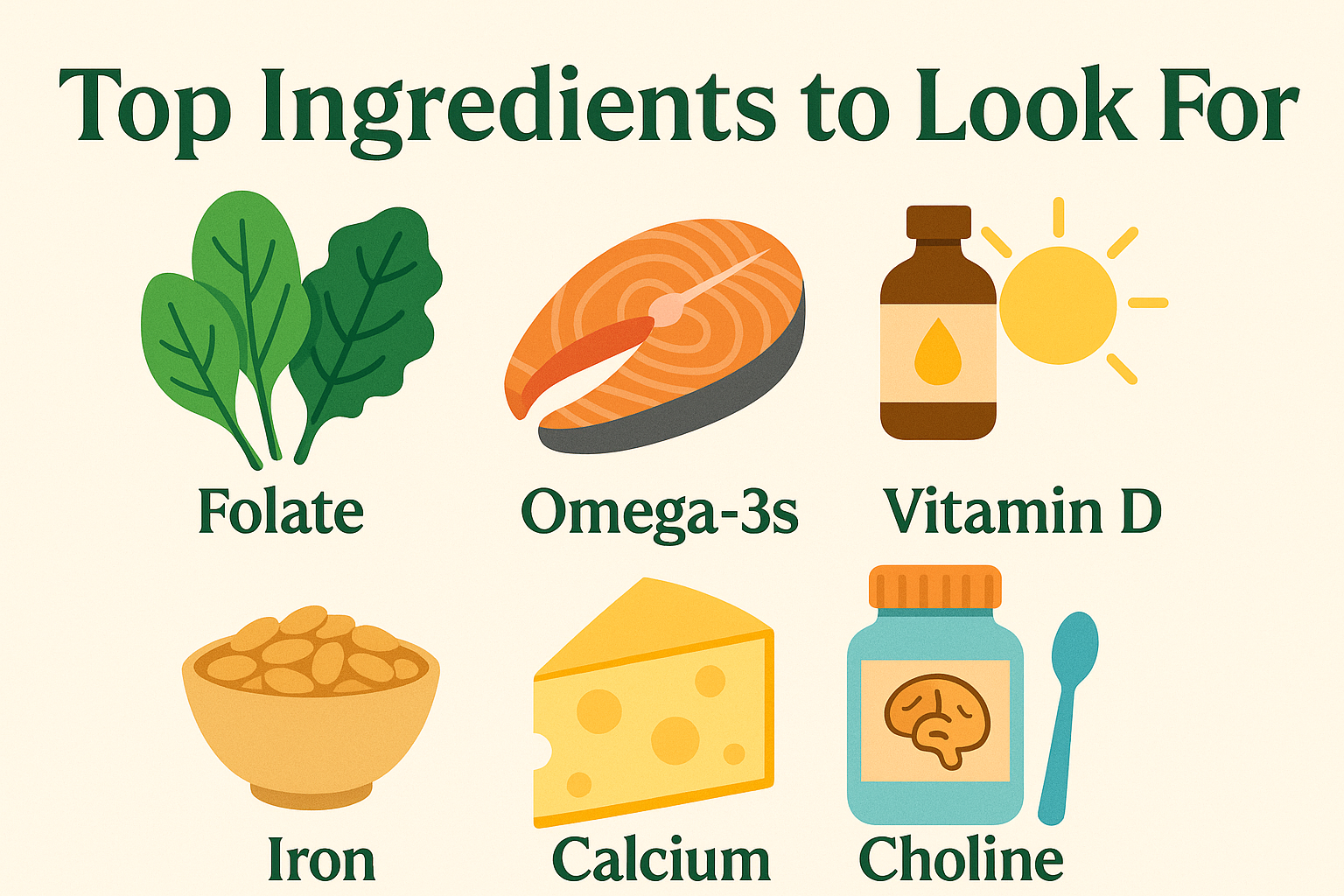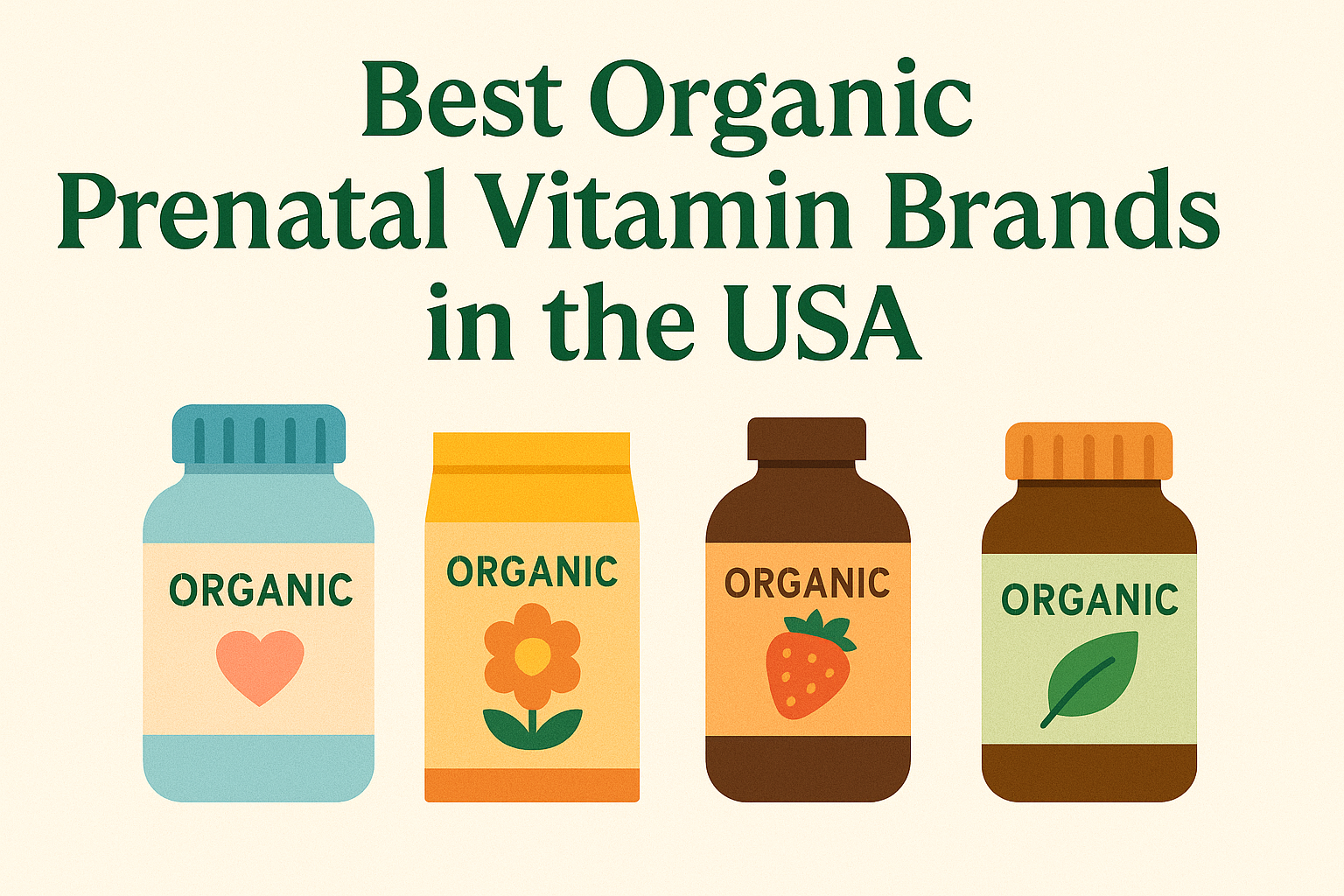Safe & Pure: Top Organic Prenatal Vitamins for Pregnancy USA Moms
Pregnancy is a magical yet demanding journey for every woman, and ensuring the health of both mom and baby starts with proper nutrition. For many expectant mothers in the United States, the search for organic prenatal vitamins for pregnancy usa is about more than just vitamins – it’s about safety, purity, and real peace of mind. The rise in organic products means you have more choices than ever, but making the right one can be confusing.
Why do so many moms prefer organic prenatal vitamins in the USA? The answer is clear: organic products are crafted from nature, free from harmful chemicals, synthetic fillers, and unnecessary additives. In a world where every little choice can impact your baby’s health, choosing the purest and safest option isn’t just wise – it’s essential.
This comprehensive guide will walk you through everything you need to know: what makes a prenatal vitamin “organic”, the top ingredients to look for, the leading USA brands, safe usage tips, and authentic reviews from American moms who have walked this path before you. Ready to take control of your pregnancy journey? Let’s begin!
Understanding Organic Prenatal Vitamins
What Makes a Vitamin “Organic”?
Organic prenatal vitamins are made from whole food sources, grown without synthetic pesticides, herbicides, or GMOs. To be officially labeled “organic” in the USA, these supplements must meet strict USDA Organic standards – containing at least 95% organically produced ingredients. Organic means the vitamin’s journey from farm to bottle is transparent, clean, and safe for you and your baby.
Key Benefits for Pregnant Women
Organic prenatal vitamins offer peace of mind, delivering nutrients without the risks associated with synthetic chemicals. Benefits include:
-
Lower risk of contaminants like heavy metals or pesticides
-
Easier absorption because nutrients come from real foods
-
Gentle on sensitive stomachs, especially for moms prone to morning sickness
-
No artificial colors, flavors, or preservatives
-
Sustainable farming practices for a healthier planet and pregnancy
How Organic Differs from Regular Prenatals
While conventional prenatal vitamins often rely on lab-made, isolated nutrients, organic prenatals use whole-food sources, which may support better absorption. Many non-organic brands may include:
-
Synthetic vitamins and minerals
-
Artificial dyes and fillers
-
Unnecessary sugars and preservatives
Organic options, on the other hand, keep it simple, safe, and clean.
Certifications & Standards in the USA
When shopping for organic prenatal vitamins in the US, look for these key certifications:
-
USDA Organic: The gold standard, verifying that the product meets strict organic guidelines.
-
Non-GMO Project Verified: Ensures the ingredients are not genetically modified.
-
Vegan, Gluten-Free, and Allergen-Free: Ideal for moms with dietary sensitivities.
Info Table 1: Key Differences – Organic vs. Conventional Prenatal Vitamins
| Feature | Organic Prenatal Vitamin | Regular Prenatal Vitamin |
|---|---|---|
| Source | Whole food, organic ingredients | Synthetic/isolated compounds |
| Certification | USDA Organic, Non-GMO | Often none |
| Artificial Additives | None or minimal | Common |
| Allergen Risk | Low | Medium to High |
| Environmental Impact | Sustainable | Not prioritized |
Info Table 2: Common Certifications in the USA
| Certification | Meaning |
|---|---|
| USDA Organic | 95%+ organic content, strict agricultural standards |
| Non-GMO Project | No genetically modified organisms |
| Vegan | No animal products or by-products |
| Gluten-Free | Safe for gluten intolerances |
| GMP Certified | Produced in certified, high-quality facilities |

Top Ingredients to Look For
Essential Nutrients for Pregnancy
When selecting a prenatal vitamin, these nutrients are must-haves:
-
Folate (not just folic acid): Supports neural tube development
-
Iron: Prevents anemia and supports baby’s growth
-
Calcium: Crucial for bones and teeth
-
Vitamin D3: Boosts immunity and helps calcium absorption
-
Iodine: Supports brain and thyroid development
-
Choline: For healthy brain development
-
Omega-3s (DHA/EPA): Supports vision and cognitive growth
Why Organic Sourcing Matters
Nutrients from organic sources are less likely to be contaminated and may be more bioavailable. For example, folate from leafy greens in organic vitamins is often better absorbed than synthetic folic acid. Omega-3s derived from organic algae are pure and toxin-free.
Reading Ingredient Labels
Look for labels that clearly state the source of each nutrient (e.g., “organic spinach” for folate). Avoid products that list vague “proprietary blends,” artificial sweeteners, or colorants.
Potential Allergens to Avoid
If you have food sensitivities, double-check for:
-
Soy, dairy, or gluten (some brands are free from these)
-
Synthetic dyes (often listed as Red #40, Blue #1, etc.)
-
Added sugars or artificial flavors
Info Table 3: Essential Nutrients & Organic Sources
| Nutrient | Why It’s Needed | Best Organic Source |
|---|---|---|
| Folate | Neural tube development | Spinach, kale, lentils |
| Iron | Prevents anemia | Organic legumes, seeds |
| Calcium | Bone health | Chia seeds, broccoli |
| Vitamin D3 | Immune/bone support | Lichen, mushrooms |
| Omega-3 (DHA) | Brain & eye development | Organic algae |
Info Table 4: Ingredients & Additives to Avoid
| Ingredient/Additive | Risk for Pregnancy |
|---|---|
| Artificial Colors | Potential allergens, unknown effects |
| Synthetic Flavors | May cause sensitivities |
| GMOs | Controversial, best avoided |
| Added Sugars | Unnecessary calories |
| Magnesium Stearate | Potential GI irritation |

Best Organic Prenatal Vitamin Brands in the USA
2025’s Leading Organic Brands
Here are the most trusted and highly-rated brands for organic prenatal vitamins in the United States:
-
Garden of Life MyKind Organics Prenatal Multi
-
MegaFood Baby & Me 2
-
SmartyPants Organic Prenatal Formula
-
MaryRuth Organics Prenatal & Postnatal
-
New Chapter Perfect Prenatal Multivitamin
Brand Comparison Table
Let’s break down the highlights and certifications of each brand:
| Brand | Key Features | Certifications | Price Range |
|---|---|---|---|
| Garden of Life MyKind | Whole-food, vegan, gentle on stomach | USDA Organic, Non-GMO, Vegan | $$ |
| MegaFood Baby & Me 2 | Iron from food, easy to digest, no synthetic fillers | Non-GMO, Vegetarian, Gluten-Free | $$$ |
| SmartyPants Organic | Includes DHA/EPA, gummy form, allergen-friendly | Organic, Non-GMO, Allergen-Free | $$ |
| MaryRuth Organics | Liquid, easy absorption, great for sensitive tummies | Organic, Vegan, Gluten-Free | $$ |
| New Chapter Perfect Prenatal | Fermented for better absorption, with probiotics | Non-GMO, Organic, Kosher | $$ |
Info Table 5: Where to Buy Safely Online
| Platform | Why Choose |
|---|---|
| Amazon.com | Wide selection, verified reviews, fast shipping |
| iHerb | Global shipping, discounts, genuine brands |
| Vitacost | Good deals, USA-based, many options |
| Official Brand Sites | Fresh stock, direct warranties |
| Whole Foods Online | Organic focus, quality assurance |
Safe Usage & Dosage Tips
How to Take Prenatal Vitamins Correctly
-
Take daily, with food: Helps reduce nausea and improves nutrient absorption.
-
Split doses if needed: Some vitamins are better tolerated in smaller doses throughout the day.
-
Stay consistent: Missing days can impact your and your baby’s health.
Recommended Dosage for Pregnant Women
Most prenatal vitamins are formulated for once-daily use, but always follow your healthcare provider’s advice. Overdosing certain vitamins (like vitamin A or iron) can be harmful.
-
Folate: 400-800 mcg daily
-
Iron: 27 mg daily
-
Calcium: 1,000 mg daily
-
DHA: 200-300 mg daily
Common Side Effects & How to Avoid Them
Some moms may experience mild nausea, constipation, or metallic taste.
Tips to avoid side effects:
-
Take vitamins with meals
-
Drink plenty of water
-
Try gummies or liquids if pills are too harsh
Consulting with Your Doctor
Always discuss any new supplement with your OB-GYN or midwife, especially if you have existing health issues, allergies, or take other medications.
Info Table 6: Common Dosages
| Nutrient | Typical Amount in Prenatal Vitamin | USA RDA for Pregnancy |
|---|---|---|
| Folate | 400–800 mcg | 600 mcg |
| Iron | 18–30 mg | 27 mg |
| Calcium | 200–400 mg | 1,000 mg |
| DHA | 100–300 mg | 200–300 mg |
Info Table 7: Side Effects & Solutions
| Side Effect | How to Prevent or Reduce |
|---|---|
| Nausea | Take with food, try different formats |
| Constipation | Increase fluids, add fiber |
| Aftertaste | Use gummies, liquids, or flavored |
| Heartburn | Take with lots of water, split dose |

Real Mom Experiences & FAQs
Success Stories from USA Moms
Thousands of moms across America trust organic prenatal vitamins for a healthier pregnancy.
-
Ashley from California: “I switched to organic prenatal vitamins after my first trimester and felt so much better. Less nausea, and I loved knowing exactly what I was putting in my body.”
-
Lindsay from Texas: “The liquid form was a lifesaver for my sensitive stomach!”
-
Tina from New York: “My OB recommended a whole-food based option, and I felt great throughout my pregnancy.”
Frequently Asked Questions
Are organic prenatal vitamins better than regular ones?
Organic options avoid synthetic chemicals and often use real-food sources, which can be gentler and better absorbed. However, any high-quality prenatal is better than none at all.
Can I get all my nutrients from food instead of supplements?
It’s possible, but very difficult during pregnancy. A quality prenatal ensures you don’t miss out on crucial nutrients.
Do I need to take organic prenatal vitamins if I already eat organic?
Even with an organic diet, it’s hard to reach the recommended levels of certain nutrients like folate, iron, and DHA.
Are organic prenatal vitamins safe for everyone?
Generally, yes – but always check for allergens and consult your doctor first.
What’s the best time of day to take prenatal vitamins?
Most moms find mornings with breakfast easiest, but you can adjust to what feels best for you.
Can I continue taking organic prenatal vitamins while breastfeeding?
Yes! Many brands are designed for both prenatal and postnatal support.
Conclusion
Choosing the right organic prenatal vitamins for pregnancy usa can feel overwhelming, but focusing on purity, whole-food sources, and trusted brands will help you and your baby thrive. Always read labels, watch for certifications, and speak with your healthcare provider for personalized advice. Remember, your health is your baby’s first building block—choose wisely, and enjoy your pregnancy journey!
For more information, check out the American Pregnancy Association’s guide on prenatal vitamins.
Share this content:













Post Comment